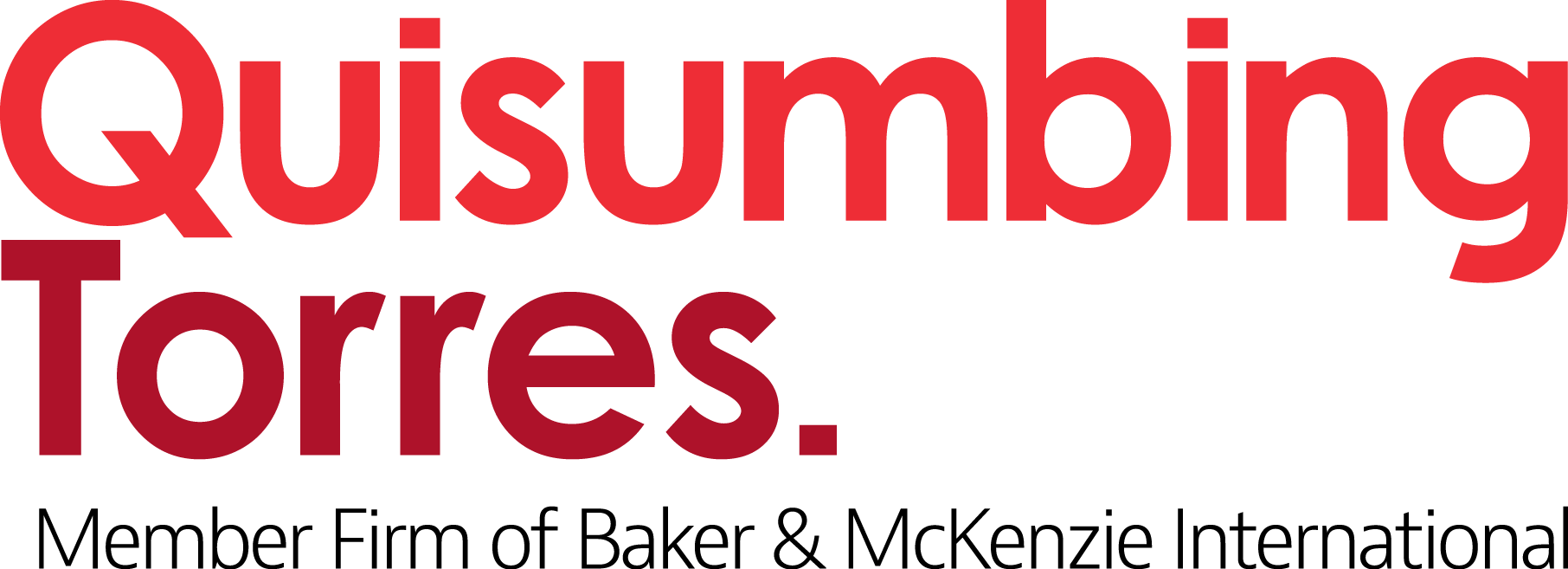In brief
This is an update to our client alerts on Senate Bill 1754 and Senate Bill 2094 (“Bill“).
Contents
- Recent developments
- Background
- Salient provisions of the final version of the Bill
- Why the amendments to the Public Service Act are relevant to you
The Bicameral Conference Committee approved a final version of the Bill, and is now awaiting approval of the President before it passes into law.1 Once this becomes law, the Philippines will have a Public Services law that (a) removes foreign equity restrictions on most public service companies, except those considered as ‘public utility’ and ‘critical infrastructure’; (b) limits the scope of ‘public utility’ to public service companies involved in distribution and transmission of electricity, petroleum and petroleum products pipeline transmission systems, water pipeline distribution systems, wastewater and sewerage pipeline systems, seaports, and public utility vehicles; and (c) limits the scope of ‘critical infrastructure’ to public service companies that own, use or operate systems and assets that are “vital to the Republic of the Philippines that the incapacity or destruction of such systems or assets would have a detrimental impact on national security, including telecommunications and other such vital services as may be declared by the President of the Philippines.”
Recent developments
On 3 February 2022, the Congress’ Bicameral Conference Committee2 approved a final version of the Bill that seeks to amend the Public Service Act with a view to limiting the foreign equity restrictions imposed by the Philippine Constitution on ‘public utilities.’
Once this version passes into law, the Philippines will have a Public Services law that (a) removes foreign equity restrictions on most public service companies, with the exception of those considered as ‘public utility’ and ‘critical infrastructure;’ (b) limits the scope of ‘public utility’ to public service companies involved in distribution and transmission of electricity, petroleum and petroleum products pipeline transmission systems, water pipeline distribution systems, wastewater and sewerage pipeline systems, seaports and public utility vehicles; and (c) limits the scope of ‘critical infrastructure’ to public service companies that own, use or operate systems and assets that are “vital to the Republic of the Philippines that the incapacity or destruction of such systems or assets would have a detrimental impact on national security, including telecommunications and other such vital services as may be declared by the President of the Philippines.”
The final version of the Bill will be sent to the Office of the President before it passes into law.
Please read our earlier client alerts on Senate Bill 1754 and Senate Bill 2094 for further context on the developments leading to this final version of the Bill.
Background
Under the Philippine Constitution, “[n]o franchise, certificate, or any other form of authorization for the operation of a public utility shall be granted except to citizens of the Philippines or to corporations or associations organized under the laws of the Philippines at least sixty per centum of whose capital is owned by such citizens…” (Article XII, Section 11)
Presently, the term ‘public utility’ is not defined by law. The Public Service Act, enacted in 1936, enumerates a list of ‘public services’ without, however, defining ‘public utilities.’ As a result, all public services under the Public Service Act are currently being required to comply with the nationality requirement under the Philippine Constitution (i.e., maximum of 40% foreign ownership).
The amendments to the Public Service Act aim to remove the above-mentioned nationality requirements presently being imposed on most public service companies by limiting the definition of a ‘public utility’ to particular sectors, and introducing the concept of ‘critical infrastructures,’ which will be subject to certain foreign restriction requirements.
Salient provisions of the final version of the Bill
Below are the salient provisions of the final version of the Bill, as approved by the Bicameral Conference Committee:
- Foreign equity restrictions on most public service companies are removed, with the exception of those considered as ‘public utilities’ and ‘critical infrastructures.’
- Only the following public service companies involved in the following services are considered ‘public utilities’ and are subject to the 40% foreign ownership requirement under the Constitution: (a) distribution and transmission of electricity, (b) petroleum and petroleum products pipeline transmission systems, (c) water pipeline distribution systems, (d) wastewater and sewerage pipeline systems, (e) seaports and (f) public utility vehicles (PUVs).
- Airports, expressways and tollways, and petroleum pipeline ‘distribution’ systems previously included as ‘public utilities’ in Senate Bill 2094 are no longer considered public utilities in the final version of the Bill.
- While PUVs are still included in the list of public utilities, its scope has changed. In the final version, PUVs include ‘internal combustion engine vehicles’ and ‘domestic cargo for a fee.’ The earlier versions covered ‘road vehicles’ and ‘cargo for a fee’ without distinguishing between domestic and foreign cargo. Moreover, in the final version, ‘transport vehicles accredited with and operating through transport network corporations’ are not considered PUVs deemed as public utilities, and thus are not subject to the 40% foreign ownership limit. This carve-out was not present in the earlier versions.
- Critical infrastructures are subject to certain nationality restrictions and responsibilities.
- Critical infrastructure refers to “any public service which owns, uses, or operates systems and assets, whether physical or virtual, so vital to the Republic of the Philippines that the incapacity or destruction of such systems or assets would have a detrimental impact on national security, including telecommunications and other such vital services as may be declared by the President of the Philippines.”
The definition of critical infrastructure differs from the earlier versions of the Bill, where critical infrastructure was limited to (a) telecommunications, (b) air carriers, (c) domestic shipping and (d) railways and subways. The President will determine whether a business constitutes critical infrastructure. The definition of critical infrastructure in the final version appears to be broad, and thus may be interpreted as extending beyond the aforementioned industries.
- Foreign nationals are allowed to own more than 50% of capital in public services engaged in the operation and management of critical infrastructure, but only if the country of such foreign national accords reciprocity to Philippine nationals under foreign law or a treaty. Reciprocity may be satisfied by according rights of similar value in other economic sectors, which shall be the subject of further rules by the National Economic Development Authority (NEDA).
- Critical infrastructures are subject to certain responsibilities. For instance, in the event of service interruptions, operators of critical infrastructures are required to act on customer complaints or provide an action plan within one day. They also need to submit monthly reports detailing service interruptions, complaints and actions taken on each complaint. Further, they are required to obtain certifications from an accredited body attesting to their compliance with information security standards.
- It should be noted that passive telecommunications tower infrastructure and value-added service (VAS) are not covered by foreign equity restrictions. The definition of ‘telecommunications’ expressly excludes passive telecommunications tower infrastructure and components and VAS. The exclusion of these services result in the clarification that these services are not to be considered ‘public utilities’ or ‘critical infrastructures’, and are therefore not subject to foreign equity restrictions. The National Telecommunications Commission (NTC) may therefore have to update its regulations on these services, particularly those requiring the registration of VAS providers.
- Companies controlled by or acting on behalf of a foreign government or foreign state-owned enterprises are subject to restrictions.
- A foreign state-owned enterprise refers to an entity in which a foreign state (a) directly or indirectly owns more than 50% of the capital, taking into account both the voting rights and beneficial ownership; (b) controls, through ownership interests, the exercise of more than 50% of the voting rights; or (c) holds the power to appoint a majority of members of the board of directors or any other equivalent management body.
- Companies controlled by, or acting on behalf of, a foreign government or foreign state-owned enterprises are prohibited from owning capital in any public service classified as public utility or critical infrastructure. However, this prohibition only applies to investments made after the effectivity of the amendments to the Public Service Act. Notably, in the earlier versions of the Bill, the prohibition only covered ownership of capital in critical infrastructures, but not public utilities.
- Foreign state-owned enterprises that own capital prior to the effectivity of the amendments are prohibited from investing in additional capital upon the effectivity of the amendments. However, the sovereign wealth funds and independent pension funds of each state may collectively own up to 30% of the capital of such public services.
- An entity controlled by, or acting on behalf of a foreign government or foreign-owned enterprises, is not allowed to make any data or information disclosure, assistance, support or cooperation to any foreign government, instrumentalities or agents.
- Individuals or entities engaged in the telecommunications industry must obtain and maintain certifications from an accredited certification body attesting to compliance with relevant International Organization for Standardization (ISO) standards on information security, as prescribed by the Department of Information and Communications Technology.
- The maintenance of these certifications shall be a continuing qualification for retention of franchise or other authority to operate.
- However, this requirement shall not apply to micro, small and medium enterprises under Republic Act No. 6977, otherwise known as the ‘Magna Carta for Micro, Small and Medium Enterprises.’
Why the amendments to the Public Service Act are relevant to you
Once the amendments pass into law, the industries covered by foreign equity restriction will be limited to those considered as public utilities and critical infrastructures, as defined under the Bill. Thus, this will create more opportunities for foreign investors to invest in the various public service sectors that are no longer considered as public utilities and are subject to foreign equity restriction. In addition, businesses that rely on these newly liberalized sectors (e.g., business process outsourcing and information technology enterprises) will stand to benefit, as additional investments into these sectors are expected to result in increased competition, lower prices and better quality of services.Existing businesses in the public services sector will need to exercise heightened vigilance in ensuring compliance with the law, the rules and regulations of the relevant agencies, and the terms and conditions of their respective authority. This is especially true for businesses that are considered public utilities or critical infrastructures, given the additional responsibilities imposed upon them. On the other hand, businesses in the public services sector should be ready to face the challenges of competition in the market resulting from expected increase in investments due to the lifting of the foreign equity restrictions.
1 Upon receipt of the Bill, the President can either: (i) sign the Bill and enact it into law; (ii) not act on the Bill within 30 days after receipt (after which period the Bill will lapse into law); or (iii) veto the Bill. Notwithstanding the President’s veto, the Bill will pass into law if two-thirds of the members of both the House of Representatives and the Senate agree to pass the Bill.
2 If the House-approved version of the Bill is incompatible with that of the Senate’s, a Bicameral Conference Committee is formed to reconcile conflicting provisions of both versions of the Senate and of the House of Representatives.

Please contact QTInfoDesk@quisumbingtorres.com for inquiries.



